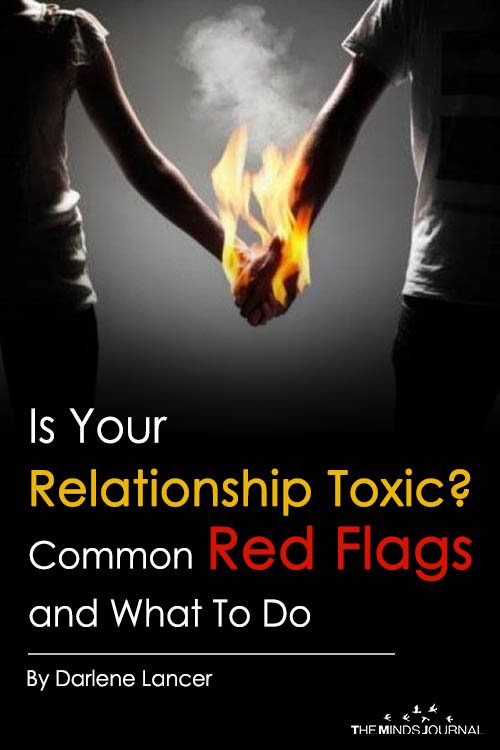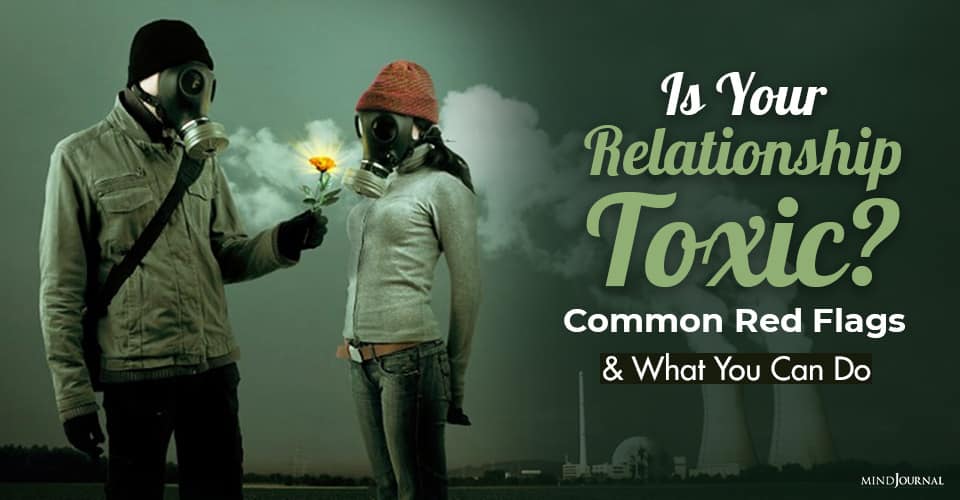Healthy relationships nourish and support us. A toxic relationship, on the other hand, is like poison to us — instead of lifting us up, it makes us feel worse.
When it ends, we might experience post-traumatic stress or a lessening of self-esteem and trust in ourselves and others. Still, although friends and family might tell us to leave, it can be hard to let go — despite the fact that the relationship is harmful and painful.
Signs and Symptoms
In a survey conducted by Glamour in 2011, 60 percent of women 18-to-35 years old said that they’d experienced abuse. About half had been in a physically abusive relationship, but don’t underestimate the damage of emotional abuse: It’s more predictive of stress and depression than physical abuse, which itself is almost always preceded by emotional abuse.
It’s not uncommon for people to minimize, deny, or rationalize their pain and unmet needs and thus stay in a toxic relationship. In so doing, they underestimate the real consequences to their mental and physical health, including increased stress and depression.
Some crucial signs that you may be in a toxic relationship include:
1. You feel drained or starved, instead of nourished.
2. Your behavior is motivated by fear, anger, or guilt.
3. Your needs and feelings are ignored.
4. You “walk on eggshells,” for fear of upsetting your partner.
5. You frequently feel used, exploited, or disrespected.
Any of the following behaviors are symptomatic of a toxic relationship:
1. Violence, including physical and sexual abuse or property damage.
2. Active addiction.
3. Chronic dishonesty.
4. Gross irresponsibility.
5. Frequent or major mood swings.
6. Chronic passive-aggressiveness.
7. Misappropriation of money or property.
8. Emotional abuse, including frequent verbal abuse and manipulative, belittling, controlling, punishing, or withholding behavior.
Related: 5 Ways To Avoid Toxic Relationships and Find Meaningful Ones
What To Do
If you’re experiencing any of these signs or symptoms, don’t keep it a secret. If you or a child is being physically abused, get help and access to safety immediately. Talk to someone you trust and seek professional help — ideally in couple’s therapy. However, if there is violence or coercion, individual counseling for each partner is preferred. If your partner is unwilling to get individual help or attend joint sessions, get individual help for yourself: A relationship can still change when only one person is in counseling.
By not reacting, and learning to trust yourself, speak up, and set boundaries, toxic patterns in your relationship can improve. Meanwhile, keep a journal of your feelings. Observe and note your partner’s behavior, how it makes you feel, what is said, and what you’d like to say. Take action to build your self-esteem and learn how to be assertive. You will need support in making changes.
Related : Narcissistic Abuse Syndrome: 10 Signs You’ve Experienced Narcissistic Abuse
Consider whether you both are willing to:
- Reciprocate more.
- Go to individual or conjoint therapy and seek group support (such as a 12-Step Program; e.g. Codependency Anonymous, or Nar-Anon or Al-Anon Family Groups for addiction).
- Treat each other with more respect.
- Take responsibility for your behavior.
- Care about the effect of your behavior on one another.
On the other hand, change is less likely if either of you:
- Continue to be secretive or dishonest and won’t admit it.
- Violate the law or ethical standards without remorse.
- Continue to be physically or emotionally abusive without remorse.
- Continue to be grossly irresponsible.
By getting help, your self-esteem will increase, and you can gain the confidence to better cope with the relationship — or to leave. Once it’s over, you may feel relief and not even miss your ex, but you might still benefit from professional help to rebuild your self-esteem, learn effective communication skills, and heal from the detrimental effects of the relationship.
This frees you to once again trust yourself and others, and to have a healthy, loving relationship in the future.
Related : 4 Signs You’re Emotionally Drained (And What To Do)
©Darlene Lancer 2018
Written by Darlene Lancer JD, MFT










Leave a Reply